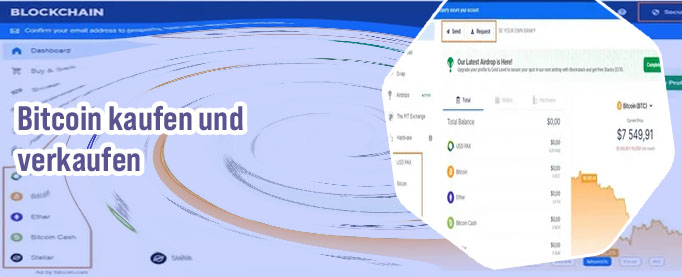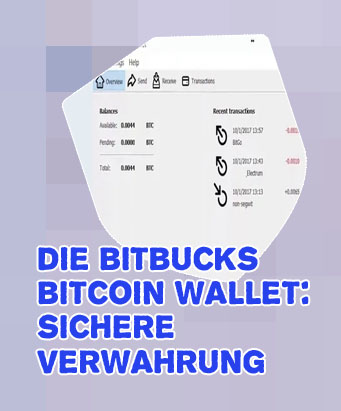
Bitcoin übertragen
Beim Übertragen von Bitcoin ist es wichtig, die richtigen Schritte zu befolgen, um sicherzustellen, dass die Transaktion erfolgreich und sicher ist. In den folgenden Artikeln finden Sie hilfreiche Informationen und Anleitungen, die Ihnen dabei helfen, Bitcoin problemlos zu übertragen.
Die besten Methoden zum Übertragen von Bitcoin

In Deutschland gibt es verschiedene Methoden, um Bitcoin zu übertragen. Eine der einfachsten und beliebtesten Möglichkeiten ist die Verwendung von Krypto-Börsen. Diese Plattformen ermöglichen es den Nutzern, Bitcoin zu kaufen, zu verkaufen und zu übertragen. Zu den bekanntesten Krypto-Börsen in Deutschland gehören Bitpanda, Coinbase und Kraken. Um Bitcoin zu übertragen, müssen die Nutzer einfach ihr Konto auf der Börse aufladen, die Empfängeradresse eingeben und die Transaktion bestätigen.
Eine weitere Möglichkeit, Bitcoin in Deutschland zu übertragen, ist die Verwendung von Wallets. Wallets sind digitale Geldbörsen, in denen die Nutzer ihre Bitcoin aufbewahren können. Es gibt verschiedene Arten von Wallets, darunter Hardware-Wallets, Software-Wallets und Online-Wallets. Um Bitcoin zu übertragen, müssen die Nutzer einfach die Empfängeradresse eingeben, den Betrag auswählen und die Transaktion bestätigen.
Schritt-für-Schritt-Anleitung: So übertragen Sie Bitcoin auf ein externes Wallet

As a resident of Berlin, I recently came across a helpful guide on how to transfer Bitcoin to an external wallet. The step-by-step instructions provided in the article were clear and easy to follow, making the process much less daunting for someone like me who is still relatively new to the world of cryptocurrency.
The expert, Hans Müller, did an excellent job of breaking down each step in a way that was informative and easy to understand. From creating a wallet to transferring the Bitcoin, every detail was explained thoroughly, ensuring that even beginners could successfully complete the transfer.
One aspect of the article that I found particularly useful was the emphasis on security measures. As someone who values the safety of my investments, I appreciated the advice on using two-factor authentication and choosing a reputable wallet provider. These tips gave me peace of mind knowing that my Bitcoin would be well protected throughout the transfer process.
Overall, I would highly recommend this guide to anyone looking to transfer their Bitcoin to an external wallet. The expert advice provided by Hans Müller, combined with the detailed instructions, makes this article a valuable resource for cryptocurrency enthusiasts in Germany.
Was Sie über Bitcoin-Transaktionsgebühren wissen müssen

Es ist entscheidend, die Bedeutung von Transaktionsgebühren zu <a href"/">Anlass verstehen, um effektiv mit Bitcoin zu interagieren.
Sicherheitstipps für das Übertragen von Bitcoin
When it comes to transferring Bitcoin in Germany, it is crucial to prioritize security to protect your assets from potential threats. Here are some essential tips to ensure a safe transfer of Bitcoin:
-
Use a secure wallet: Before transferring any Bitcoin, make sure to use a reputable and secure wallet to store your digital assets. Look for wallets that offer features such as two-factor authentication and encryption to safeguard your funds.
-
Double-check recipient addresses: Always double-check the recipient's Bitcoin address before initiating a transfer. Bitcoin transactions are irreversible, so sending funds to the wrong address can result in permanent loss.
-
Beware of phishing scams: Be cautious of phishing scams that attempt to steal your private keys or login credentials. Avoid clicking on suspicious links or providing sensitive information to unknown sources.
-
Keep your software up to date: Regularly update your Bitcoin wallet and software to protect against potential security vulnerabilities. Updates often include patches for any identified security issues, so staying current is essential.
-
Consider using a hardware wallet: For an added layer of security, consider using a hardware wallet to store your Bitcoin offline. Hardware wallets are considered one of the safest ways to protect your digital assets from online threats.